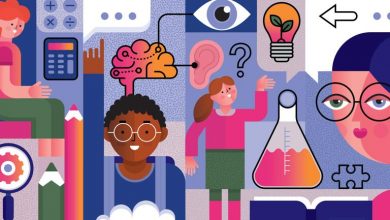Aster Emerges: Astherus Rebrands to Lead Decentralized Perpetual Trading


Mahé, Seychelles, 31st March 2025, Chainwire
Astherus, a multi-asset liquidity hub backed by YZi Labs (formerly Binance Labs), today announces its official rebrand to Aster, marking a significant strategic shift toward becoming the leading decentralized perpetuals exchange (perps DEX). The rebrand also introduces Aster’s future token ticker $AST, which will replace the current $APX token. This follows the earlier merger between Astherus and decentralized perp protocol APX Finance.
APX and Astherus have collectively processed over $258 billion in decentralized perpetual trading volume to date. Building on this foundation, Aster introduces two seamless trading modes:
- Simple Mode: On-chain, one-click, MEV-resistant perpetual trading
- Pro Mode: Advanced order book interface with deep liquidity, extremely low trading fees, and advanced trading tools
Aster is now strategically positioned to challenge industry leaders like Hyperliquid, with a roadmap that includes the integration of zero-knowledge proofs, a purpose-built Layer 1 blockchain, and intent-based architecture to simplify the DeFi trading experience.
“The rebrand is central to our ambition of leading the DeFi perps market. Our strategic focus on perpetual trading will also ensure Aster’s long-term sustainability,” said Dust, a Core Contributor of Aster. “Our roots in APX and YZi Labs gave us a strong foundation in both trading infrastructure and yield strategies. Aster will continue to prioritize top-tier user experience, liquidity, and security.”
In line with its rebrand, Aster has significantly upgraded its platform, including:
- A fully redesigned homepage reflecting its new identity
- Enhanced trading UI and UX with seamless switching between modes
- New fee structure: Maker 0.01%, Taker 0.035%
- Deep liquidity provided in partnership with top-tier market makers
- A referral program offering 20% commission, with a tiered system in the works
- Rh Points Program, launching within the next 2 weeks, where traders earn points redeemable for future airdrops
- Welcome all traders to try the platform just like CZ did – with a special $10,000 trading campaign targeting users from other leading perp DEXs
In the long term, Aster is building toward the launch of its own Layer 1 blockchain, optimized for trading performance, and will introduce Aster-native blockchain explorers to bring transparency and insight to on-chain trading activity.
As part of the rebrand, Aster is introducing a new token ticker, $AST, to represent the platform’s evolving identity. While the token listing is planned for the future, Aster’s top priority is building world-class product infrastructure. $AST will play a central role in the ecosystem once the foundation is in place.
Aster will continue to support Astherus’ popular yield products under Aster Earn, including the BNB liquid staking derivative asBNB and yield-bearing stablecoin USDF.
Further ecosystem partnerships, airdrop details, and token mapping timelines will be announced in the coming weeks and months.
About Aster
Aster is a next-generation decentralized perpetual exchange built for everyone. It offers MEV-free, one-click trading with up to 1001x leverage in Simple Mode (BNB Chain, Arbitrum), and full-featured, pro-grade tools in Pro Mode (BNB Chain, Ethereum, Solana). Backed by YZi Labs, Aster is building the future of DeFi: fast, flexible, and community-first.
Multi-chain. Liquid. Secure.
Users can learn more at https://asterdex.com, or connect with the team on the official X account
Contact
Marketing Lead
Kathy
Aster
Kathy@astherus.com




